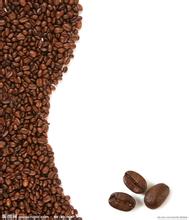Introduction to the coffee flavor and taste of the refreshing and elegant Paradise Bird Manor in Papua New Guinea
Papua New Guinea is an island country in the western South Pacific and a member of the Commonwealth. The name of the country consists of Papua and New Guinea. There are many small islands here, about 600 in size. It is adjacent to Indonesia and Australia to the south. It belongs to the Asia-Pacific region, but it is a country in Oceania. Located in the tropical climate, high temperature and rainy. It has rich volcanic soil.
The main crops here are coffee and coconut, and the coffee industry plays an important role in the country's economy. More than 1 million people are directly and indirectly engaged in the industry in this country. Papua New Guinea is rich in natural resources, but its economy is very backward. As one of the less developed countries in the world, many mountain residents still live a self-sufficient life of primitive tribes, only the coastal areas are relatively developed. Many farms reclaim land in the forest, some of which are in the depths of the forest, almost isolated from the rest of the world. So there are not many large-scale coffee plantations in Papua New Guinea, and about 75% of the coffee comes from small local farms. Because the country's overall economic level is backward and does not have good production conditions, the coffee output in Papua New Guinea is not high compared with other coffee-producing countries, but the quality of its coffee will not be inferior to that of large coffee-producing countries.
If Indonesia Mantenin is described as an old man with years of precipitation, then Papua New Guinea is a refreshing and elegant beauty. Not only the bean body is beautiful, the flavor is also beautiful and exquisite. From the map, we can see that Papua New Guinea borders Indonesia, but it does not have the full-bodied, miscellaneous and spicy characteristics of Indonesia's Mantenin. On the contrary, the flavor of Papua New Guinea is more balanced and cleaner. As coffee in this country is widely grown in the highlands of 1300 to 1800 meters above sea level, its unique volcanic soil and abundant rainfall create excellent natural conditions for the growth of coffee; and because the local coffee varieties are introduced from the Blue Mountain Coffee in Jamaica, it belongs to iron card species. Coffee beans are basically washed to make the taste better and cleaner. The innate variety advantage coupled with the excellent growth environment naturally leads to high-quality coffee. Besides. The vast majority of coffee in Papua New Guinea is organic coffee, due to inconvenient transportation, there is no railway transport, there is no sound transport network, the overall economic difficulties, coffee farmers do not have the conditions to buy chemical fertilizer. On the contrary, the lack of production and transport conditions have contributed to the characteristics of organic coffee in the country. Papua New Guinea is an island country in the western South Pacific and a member of the Commonwealth. The name of the country consists of Papua and New Guinea. There are many small islands here, about 600 in size. It is adjacent to Indonesia and Australia to the south. It belongs to the Asia-Pacific region, but it is a country in Oceania. Located in the tropical climate, high temperature and rainy. It has rich volcanic soil.
The main crops here are coffee and coconut, and the coffee industry plays an important role in the country's economy. More than 1 million people are directly and indirectly engaged in the industry in this country. Papua New Guinea is rich in natural resources, but its economy is very backward. As one of the less developed countries in the world, many mountain residents still live a self-sufficient life of primitive tribes, only the coastal areas are relatively developed. Many farms reclaim land in the forest, some of which are in the depths of the forest, almost isolated from the rest of the world. So there are not many large-scale coffee plantations in Papua New Guinea, and about 75% of the coffee comes from small local farms. Because the country's overall economic level is backward and does not have good production conditions, the coffee output in Papua New Guinea is not high compared with other coffee-producing countries, but the quality of its coffee will not be inferior to that of large coffee-producing countries.
If Indonesia Mantenin is described as an old man with years of precipitation, then Papua New Guinea is a refreshing and elegant beauty. Not only the bean body is beautiful, the flavor is also beautiful and exquisite. From the map, we can see that Papua New Guinea borders Indonesia, but it does not have the full-bodied, miscellaneous and spicy characteristics of Indonesia's Mantenin. On the contrary, the flavor of Papua New Guinea is more balanced and cleaner. As coffee in this country is widely grown in the highlands of 1300 to 1800 meters above sea level, its unique volcanic soil and abundant rainfall create excellent natural conditions for the growth of coffee; and because the local coffee varieties are introduced from the Blue Mountain Coffee in Jamaica, it belongs to iron card species. Coffee beans are basically washed to make the taste better and cleaner. The innate variety advantage coupled with the excellent growth environment naturally leads to high-quality coffee. Besides. The vast majority of coffee in Papua New Guinea is organic coffee, due to inconvenient transportation, there is no railway transport, there is no sound transport network, the overall economic difficulties, coffee farmers do not have the conditions to buy chemical fertilizer. On the contrary, the deficiency of production and transportation conditions has made this characteristic of organic coffee in the country.

Important Notice :
前街咖啡 FrontStreet Coffee has moved to new addredd:
FrontStreet Coffee Address: 315,Donghua East Road,GuangZhou
Tel:020 38364473
- Prev

Introduction to the characteristics of coffee flavor and taste of lemon manor in Nicaragua
Columbus arrived here in 1502 and reached the east coast of Nicaragua. In 1522, Spanish colonists began to conquer the region. The cities of Granada and Leon were founded in 1524. From then on, Nicaragua became a Spanish colony and came under the jurisdiction of the Governor's Office of Guatemala. The city of Leon developed into a political and cultural center; Granada became a commercial and agricultural center. In the later period of colonial rule
- Next

An introduction to the characteristics of coffee flavor and taste in Ethiopia's Xida Motede Manor with a unique and mellow taste.
In February 1977, Lieutenant Colonel Mengistu Haier Maryam (MENGISTU HAILE MARIAM) launched a military coup and served as Chairman of the interim military Administrative Council and head of State. In 1979, the Ethiopian Labor people's Party Organization Committee, dominated by soldiers, was established to implement an one-party system. In 1984, the Ethiopian Workers' Party was formed according to the Soviet Communist Party model. Mengistu, September 1987
Related
- Does Rose Summer choose Blue, Green or Red? Detailed explanation of Rose Summer Coffee plots and Classification in Panamanian Jade Manor
- What is the difference between the origin, producing area, processing plant, cooperative and manor of coffee beans?
- How fine does the espresso powder fit? how to grind the espresso?
- Sca coffee roasting degree color card coffee roasting degree 8 roasting color values what do you mean?
- The practice of lattes: how to make lattes at home
- Introduction to Indonesian Fine Coffee beans-- Java Coffee producing area of Indonesian Arabica Coffee
- How much will the flavor of light and medium roasted rose summer be expressed? What baking level is rose summer suitable for?
- Introduction to the characteristics of washing, sun-drying or wet-planing coffee commonly used in Mantenin, Indonesia
- Price characteristics of Arabica Coffee Bean Starbucks introduction to Manning Coffee Bean Taste producing area Variety Manor
- What is the authentic Yega flavor? What are the flavor characteristics of the really excellent Yejasuffi coffee beans?

